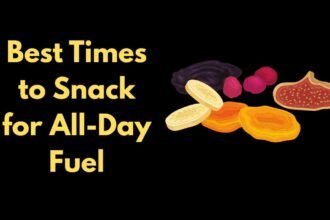When it comes to healthy eating and plant-based nutrition, peanuts are often overlooked in favor of trendy superfoods.
But did you know that peanuts contain more protein than any other nut? In fact, just one-fourth cup (about 2 ounces) provides 9.5 grams of protein, making them one of the most protein-rich foods in the nut category—even though they’re technically not nuts at all.
In this blog post, we’ll explore what makes peanuts a nutritional powerhouse, how they can support your health, and why they deserve a spot in your daily diet.
Peanuts vs. Tree Nuts: What’s the Difference?
While many people consider peanuts to be nuts, they are technically legumes. This means they belong to the same plant family as beans, lentils, and peas.
Unlike tree nuts like almonds or walnuts that grow on trees, peanuts grow underground.
Despite this botanical difference, peanuts are commonly grouped with nuts because they look, taste, and are consumed like other nuts.
They are roasted, salted, ground into butter, or tossed into salads—just like almonds or cashews.
From a nutrition standpoint, this makes peanuts a valuable substitute for tree nuts, especially for people who want a cost-effective, plant-based source of protein and healthy fats.
Rich in Protein: 9.5 Grams Per 1/4 Cup
According to the U.S. Department of Agriculture (USDA), a 2-ounce (1/4 cup) serving of peanuts provides 9.5 grams of protein. That’s higher than almonds, walnuts, or pistachios.
For comparison:
- Almonds: ~6 grams of protein per 1/4 cup
- Walnuts: ~4.5 grams of protein per 1/4 cup
- Pistachios: ~6.5 grams of protein per 1/4 cup
If you’re following a vegetarian or vegan diet, this makes peanuts a smart and convenient protein source. You can easily add them to oatmeal, smoothies, salads, or eat them as a quick snack.
Packed with Healthy Fats (The Good Kind)
Peanuts are high in unsaturated fats, which are known to support heart health. Most of their fat content comes from monounsaturated and polyunsaturated fats, which help lower LDL (bad) cholesterol and reduce the risk of cardiovascular disease.
Including peanuts in your diet may help:
- Lower your cholesterol levels
- Reduce inflammation
- Promote better circulation
- Support a healthy weight when eaten in moderation
Unlike saturated fats found in fried foods or fatty cuts of meat, unsaturated fats provide long-lasting energy and are crucial for hormone production and brain function.
Low in Carbs, High in Energy
For those monitoring their carbohydrate intake—whether for weight management, diabetes, or keto—peanuts offer another advantage: they are low in carbs.
A standard 2-ounce serving contains about:
- 6 grams of carbohydrates
- 2.4 grams of dietary fiber, which helps slow digestion and keeps you full longer
This low-carb, high-fat, and high-protein combination makes peanuts an excellent choice for sustained energy without the blood sugar spikes that come from refined carbs.
Loaded with Essential Vitamins and Minerals
Peanuts are not only a good source of protein and healthy fats but also rich in several key vitamins and minerals:
1. Vitamin E
Peanuts contain a notable amount of vitamin E, a powerful antioxidant that protects your cells from damage. Vitamin E also supports:
- Immune function
- Skin health
- Eye health
2. Niacin (Vitamin B3)
Niacin plays a vital role in turning food into energy and supporting the nervous system. A deficiency in niacin can lead to fatigue and poor memory.
3. Thiamine (Vitamin B1)
As noted by MedlinePlus, thiamine is essential for:
- Muscle contraction, especially skeletal muscles involved in movement
- Nerve function
- Energy metabolism
Thiamine is especially important for active individuals or athletes who need strong, responsive muscles.
How Peanuts Can Support an Active Lifestyle
Whether you’re a gym-goer, runner, or just someone trying to stay healthy, peanuts provide long-lasting fuel for physical activity. The combination of protein, fats, and essential vitamins supports muscle repair, endurance, and recovery.
Here’s how peanuts contribute to an active lifestyle:
- Protein helps repair and build muscle tissue after workouts
- Healthy fats keep you energized throughout your activity
- Thiamine and niacin support energy production at the cellular level
Add them to your pre-workout meal, or enjoy them as a post-workout snack with a piece of fruit for optimal nutrition.
Are Peanuts Good for Weight Loss?
Yes—when eaten in moderation, peanuts can be a helpful part of a weight loss plan. Their high protein and fat content help increase satiety, reducing the urge to overeat later.
Research suggests that people who include nuts (including peanuts) in their diets tend to have better weight management and lower body mass indexes (BMIs). The fiber and protein content slows digestion and keeps hunger at bay.
Pro Tip: Choose unsalted, dry-roasted peanuts or natural peanut butter without added sugars for the best health benefits.
Affordable and Accessible
Another major benefit of peanuts is their affordability and availability. Compared to other nuts, peanuts are widely available and cost significantly less, making them an ideal choice for budget-conscious families or students.
You can buy them in bulk, keep a stash in your pantry or desk, and enjoy their long shelf life.
Creative Ways to Add Peanuts to Your Diet
If you’re looking for easy and tasty ways to add more peanuts to your meals, here are a few ideas:
- Peanut butter smoothies: Blend with banana, oats, and almond milk
- Trail mix: Mix peanuts with dried fruits and dark chocolate chunks
- Salad topper: Add chopped peanuts to coleslaw or Asian-style salads
- Peanut sauce: Use in stir-fries or noodles
- Homemade energy bars: Combine with oats, honey, and seeds




